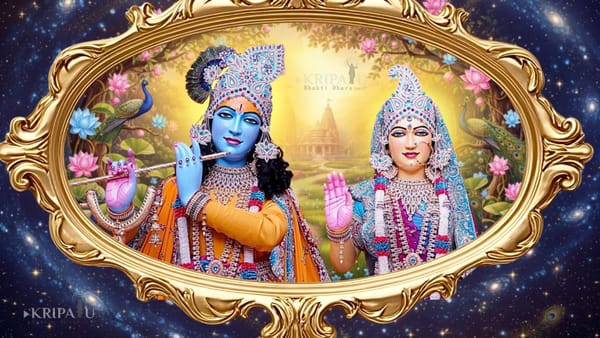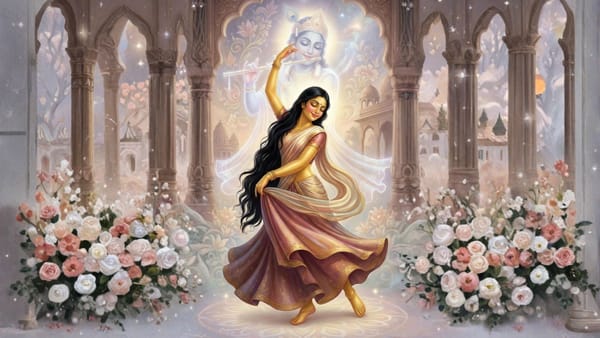Daily Devotion - June 16, 2025 (English)- Who Controls Destiny?

Question by a sadhak - Can prārabdh (destiny) be altered?
Shri Maharaj Ji's answer -
Saints and God are capable of doing anything (kartumakartumanyathākartuṃ samartha) - they can act as they wish, refrain from acting, or act contrary to expectation - Rāma bhagata kā kari na sakāhiṃ
However, they do not act against God's laws. Both God and the saints accept their destiny happily. They do not alter their own destiny, so how could they be expected to change the destiny of others?
There have been some saints who needed to return to Golok soon. So, they assumed fifty different bodies to undergo fifty years' worth of prārabdh in just one year. Since saints do not experience suffering from destiny, they willingly go through it. They face worldly losses, defamation, or even the death of a loved one without sorrow or grief, understanding that the time of departure had arrived as destined. They do not cry out in despair.
Another reason why even God does not act against His own laws is that, if He did, people would question Him, saying, "You saved your father during your descension, but not mine." There are many examples of this, such as the exile of Lord Rām, the deaths of Dasharath and Abhimanyu, and the Pandavas’ exile. Even though God has the power to nullify someone’s boons or curses, He chooses not to.
The consequences of our own past actions are referred to as destiny. When you committed sinful deeds, you ignored the teachings of saints, scriptures, and the Vedas, arrogantly declaring, “I will do as I please!” Now, when the time comes to face the consequences, you plead, “O Lord, forgive me!” Even worldly governments do not pardon offenses so easily. Therefore, you must accept the fruits of your actions as God's grace and embrace them with a smile. After all, they are the direct results of your own past karma.
But how can you experience your destiny with a smile? The answer is this: if you look at those who are worse off than you in the world, your pain will not feel as severe. However, by comparing yourself to those who appear to be better off, even Indra, the king of heaven, remains unhappy. This is because someone always ranks above him, like Brahma. Look at how many people in our country suffer - some beg all day just to obtain one full meal, while others survive on half a meal. Compared to them, you are far better off.
So, everyone should recognize God’s grace in their lives. This realization will drastically reduce feelings of sorrow. The ignorant, who constantly compare themselves to those above them, spend their lives lamenting, no matter how much God blesses them. jñānī bhugate jñāna te, mūrakha bhugate roya (The wise accept their destiny with an understanding grounded in philosophical knowledge; fools endure it with complaints).
Therefore, you must embrace destiny as God's grace, understanding that by enduring the consequences of your past sins, those sins are being resolved and nullified.





